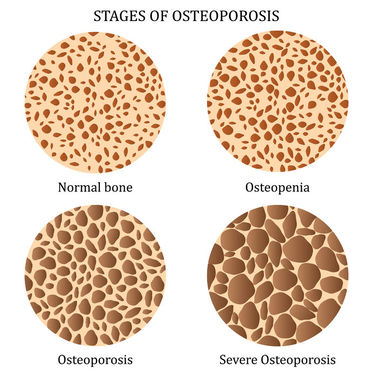|
Eric St-Onge, Chiropractor The cold season is among us! Left and right, it seems just about everyone is getting sick. One of the unfortunate results of feeling under the weather is that we miss out on our physical activity. And rightfully so! No one enjoys exercising when they are sick. (by the way, if you prefer to WATCH instead of reading, click the link here or view the embedded video below!) There are many different variables that can help and hinder your immune system. For the sake of this article, we will focus on 5.
Nutrition. This should not be a big surprise! If we are not feeding the body what it needs, it will not be working optimally. Chronically not eating enough calories is also a part of this mechanism. WHAT TO DO:
Exercise. After very long and heavy exercise bouts (>90 minutes), it’s not uncommon to have a small dip in your immune system to take a bit of a dip for up to 24hrs. WHAT TO DO:
Life Stress. Being in a state of constant low-level stress can impact your sympathetic/parasympathetic nervous system and your neuroendocrine system, all of which can impact your immune function. WHAT TO DO:
Sleep. Although one night of missed sleep may not impact your immune function, chronic sleep disturbances can raise inflammation markers in the blood. Disruption of your normal circadian rhythm (AKA, your biological clock) can also negatively impact immune function. This is most often seen in shift-workers and those travelling to new time zones. WHAT TO DO:
Environmental Extremes. Being in either very hot of very cold weather for long periods challenges your central nervous system, the hypothalamic-pituitary-adrenal axis and sympathetic nervous system. These systems also play a huge role in producing your immunoregulatory hormones. Thus if they are already under lots of stress, immune function may be impacted. WHAT TO DO:
“I’m a shift worker and it’s not possible for me to change jobs. Does this mean I’ll always be prone to get sick?” Not necessarily! It is my opinion that we can mitigate certain factors by “overcompensating” in the other factors. For instance, because in your case, sleep will always be a problem. Thus, we need to investigate the other factors that we talked about and find ways where we can “overcompensate”. For example, make meditation part of your routine (even if you are not feeling stressed), be a little stricter with your nutrition and make sure you implement naps as often as you can. (the linked video has a great visual representation of this concept of “overcompensating” – I recommended giving it a watch!) Additional readings: Walsh, N. P. (2018). Recommendations to maintain immune health in athletes. European Journal of Sport Science, 0(0), 1–12. https://doi.org/10.1080/17461391.2018.1449895 Mountjoy, M., Burke, L., Ackerman, K. E., Blauwet, C., Lebrun, C., Melin, A., … Budgett, R. (2018). International Olympic Committee ( IOC ) Consensus Statement on Relative Energy Deficiency in Sport ( RED-S ): 2018 Update, 1–19. https://doi.org/10.1136/bjsports-2018-099193
0 Comments
Tricia Hayton, Registered Physiotherapist
Motor Vehicle Accidents make up a substantial percentage of physiotherapy treatments. And although most people get back to work and play, it can be a long and sometime painful process that would be better avoided.
Here are some tips to minimize injury and quicken recovery:
Remember that we are here to help. The first few days after an accident can be a scary and stressful time. Our practitioners have been through it many times before and can assist you with navigating the experience. By Tricia Hayton
October 24th to 28th, Milton hosted the world. Held at the Mattamy National Cycling Centre, the TISSOC Track Cycling World Cup welcomed over 300 athletes and staff from 40 different countries. These cyclists travel as fast as 75 kilometers per hour around a 250-meter track in a wide variety of races. For a small highlight clip, follow this link: https://www.instagram.com/p/BpkoZ6JlTYY/?taken-by=cyclingcanadaofficial . In May, I joined Cycling Canada as part of their integrated support team in the daily training environment. Working with Olympians and inspiring NextGen athletes is very fulfilling and motivating, but the pit crew behind the athletes is just as impressive. The medical team includes sport psychology, physiotherapy, a sport medicine physician and a registered massage therapist. The scientific team includes a nutritionist (who also assists the medical team), biomechanist, exercise physiologist, a videographer and a strength and conditioning coach. Long gone are the days that you simply had to pedal harder to go faster. The science behind sport involves examining the athlete to determine training plans to maximize their ability to perform their sport. The nutritionist will look at Vitamin B levels, Ferritin blood work and diet plans to make sure that the athlete has the fundamental building blocks for training and improving. A critical element to avoid overtraining and the dreaded REDs. A strength and condition coach is boss in the gym and will measure power for the sprinter and pure strength and endurance for the endurance teams. The physiologist studies lactate and exertion at different efforts. Is it the athlete threshold or tolerance that needs to improve? The biomechanist, physiologist and physiotherapist work together to improve bike fit and aerodynamics of the athlete. In an afternoon of work, you can improve performance by 70 watts of power. A few tweaks of the bike are the same as a year of training. All of this information is fed back to the coach, so they can develop individualized training plans that maximize the performance of the team. Is it working? Well, since May, 4 broken Canadian records and 9 medals say that we are on the right track! Pun intended. Tricia Hayton is a physiotherapist and partner at Physio Sport Med of Oakville So, let's talk about it! What can be done to treat it, and more importantly what should be done to prevent it. Here are some facts that everyone should know.
If you have osteoporosis or osteopenia and are not sure where to go for help, reach out to any of our associates for advice. We can look at your diet, create and exercise class and get you the on the right path to health. Remember we are here to help.
The statistics in this article were found on the Osteoporosis Canada website. For more information please follow this link: https://osteoporosis.ca/ |
Physio Sport Med
Serving all of Oakville in the Uptown / Dundas-Trafalgar Core. Archives
May 2025
Categories |
- Info
- Book Now
-
Team
-
How We Treat
- Sport Medicine Consultation
- Manual - Exercise Physio
- Sport Physiotherapy
- Tissue Injections
- Acupuncture
- Vestibular Physiotherapy
- Osteopathy
- Chiropractic Care
- Concussion Program
- Shockwave Therapy
- Female Pelvic Health
- Male Pelvic Health
- Registered Massage Therapy
- Nutrition Consultation
- On-Field Therapy Coverage
- Custom Orthotics
-
What We Treat
- Sports Injuries
- Low Back Pain
- Osteoarthritis
- Motor Vehicle Accident
- Sprains
- Muscle Strains
- Concussion
- Rotator Cuff
- Tendonitis
- Neck Pain and Headaches
- Hip Pain
- Shoulder Pain
- Elbow, Wrist and Hand Pain
- Foot and Ankle Pain
- Post Surgical Rehabilitation
- Gait and Balance Disorders
- Knee Injuries
- Pelvic Floor Conditions
- Blog



 RSS Feed
RSS Feed